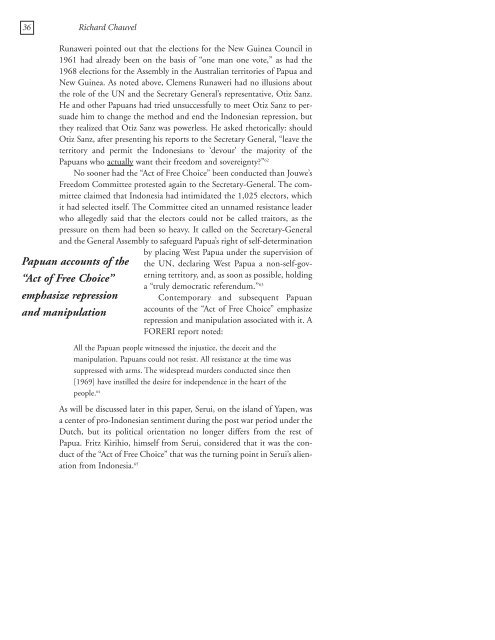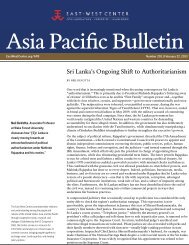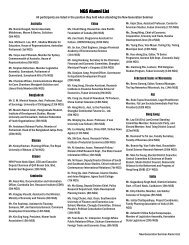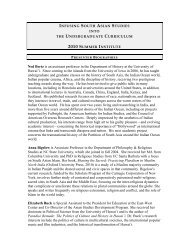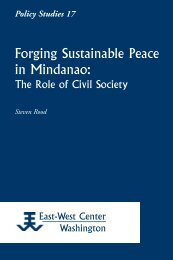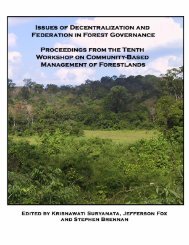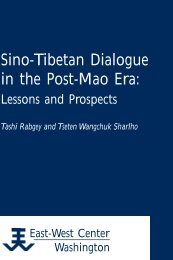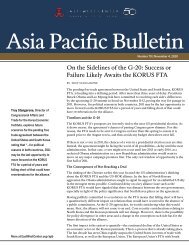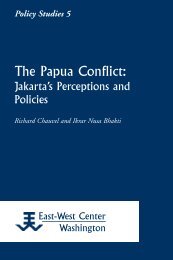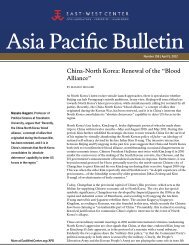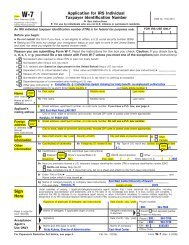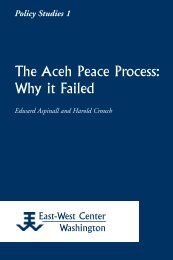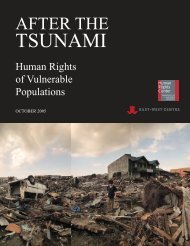Constructing Papuan Nationalism: History, Ethnicity ... - ScholarSpace
Constructing Papuan Nationalism: History, Ethnicity ... - ScholarSpace
Constructing Papuan Nationalism: History, Ethnicity ... - ScholarSpace
- No tags were found...
You also want an ePaper? Increase the reach of your titles
YUMPU automatically turns print PDFs into web optimized ePapers that Google loves.
36 Richard ChauvelRunaweri pointed out that the elections for the New Guinea Council in1961 had already been on the basis of “one man one vote,” as had the1968 elections for the Assembly in the Australian territories of Papua andNew Guinea. As noted above, Clemens Runaweri had no illusions aboutthe role of the UN and the Secretary General’s representative, Otiz Sanz.He and other <strong>Papuan</strong>s had tried unsuccessfully to meet Otiz Sanz to persuadehim to change the method and end the Indonesian repression, butthey realized that Otiz Sanz was powerless. He asked rhetorically: shouldOtiz Sanz, after presenting his reports to the Secretary General, “leave theterritory and permit the Indonesians to ‘devour’ the majority of the<strong>Papuan</strong>s who actually want their freedom and sovereignty?” 62No sooner had the “Act of Free Choice” been conducted than Jouwe’sFreedom Committee protested again to the Secretary-General. The committeeclaimed that Indonesia had intimidated the 1,025 electors, whichit had selected itself. The Committee cited an unnamed resistance leaderwho allegedly said that the electors could not be called traitors, as thepressure on them had been so heavy. It called on the Secretary-Generaland the General Assembly to safeguard Papua’s right of self-determinationby placing West Papua under the supervision ofthe UN, declaring West Papua a non-self-governingterritory, and, as soon as possible, holdinga “truly democratic referendum.” 63Contemporary and subsequent <strong>Papuan</strong>accounts of the “Act of Free Choice” emphasizerepression and manipulation associated with it. AFORERI report noted:<strong>Papuan</strong> accounts of the“Act of Free Choice”emphasize repressionand manipulationAll the <strong>Papuan</strong> people witnessed the injustice, the deceit and themanipulation. <strong>Papuan</strong>s could not resist. All resistance at the time wassuppressed with arms. The widespread murders conducted since then[1969] have instilled the desire for independence in the heart of thepeople. 64As will be discussed later in this paper, Serui, on the island of Yapen, wasa center of pro-Indonesian sentiment during the post war period under theDutch, but its political orientation no longer differs from the rest ofPapua. Fritz Kirihio, himself from Serui, considered that it was the conductof the “Act of Free Choice” that was the turning point in Serui’s alienationfrom Indonesia. 65


